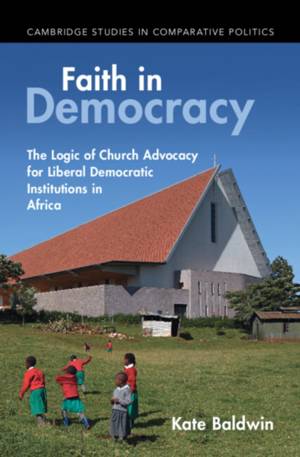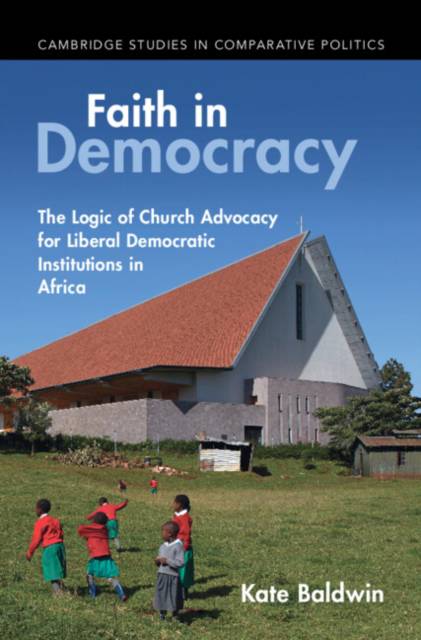
Bedankt voor het vertrouwen het afgelopen jaar! Om jou te bedanken bieden we GRATIS verzending (in België) aan op alles gedurende de hele maand januari.
- Afhalen na 1 uur in een winkel met voorraad
- In januari gratis thuislevering in België
- Ruim aanbod met 7 miljoen producten
Bedankt voor het vertrouwen het afgelopen jaar! Om jou te bedanken bieden we GRATIS verzending (in België) aan op alles gedurende de hele maand januari.
- Afhalen na 1 uur in een winkel met voorraad
- In januari gratis thuislevering in België
- Ruim aanbod met 7 miljoen producten
Zoeken
Faith in Democracy
The Logic of Church Advocacy for Liberal Democratic Institutions in Africa
Kate Baldwin
€ 165,95
+ 331 punten
Uitvoering
Omschrijving
Why have some churches in Africa engaged in advocacy for stronger liberal democratic institutions while others have not? Faith in Democracy explores this question, emphasizing the benefits of liberal democratic protections for some churches. The book explains how churches' historic investments create different autocratic risk exposure, as states can more easily regulate certain activities - including social service provision - than others. In situations where churches have invested in schools as part of their evangelization activities, which create high autocratic risk, churches have incentives to defend liberal democratic institutions to protect their control over them. This theory also explains how church fiscal dependence on the state interacts with education provision to change incentives for advocacy. Empirically, the book demonstrates when churches engage in democratic activism, drawing on church-level data from across the continent, and the effects of church activism, drawing on micro-level evidence from Zambia, Tanzania and Ghana.
Specificaties
Betrokkenen
- Auteur(s):
- Uitgeverij:
Inhoud
- Aantal bladzijden:
- 316
- Taal:
- Engels
- Reeks:
Eigenschappen
- Productcode (EAN):
- 9781009391658
- Verschijningsdatum:
- 6/11/2025
- Uitvoering:
- Hardcover
- Formaat:
- Genaaid
- Afmetingen:
- 152 mm x 229 mm
- Gewicht:
- 594 g

Alleen bij Standaard Boekhandel
+ 331 punten op je klantenkaart van Standaard Boekhandel
Beoordelingen
We publiceren alleen reviews die voldoen aan de voorwaarden voor reviews. Bekijk onze voorwaarden voor reviews.









